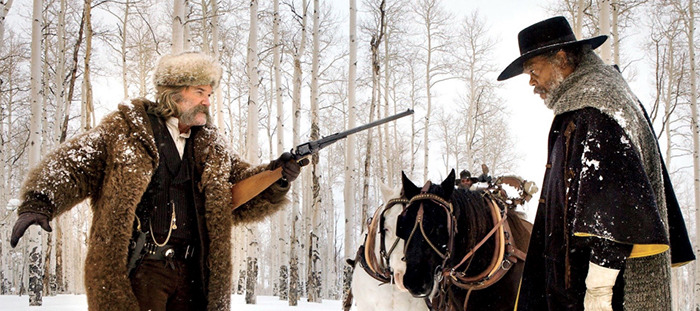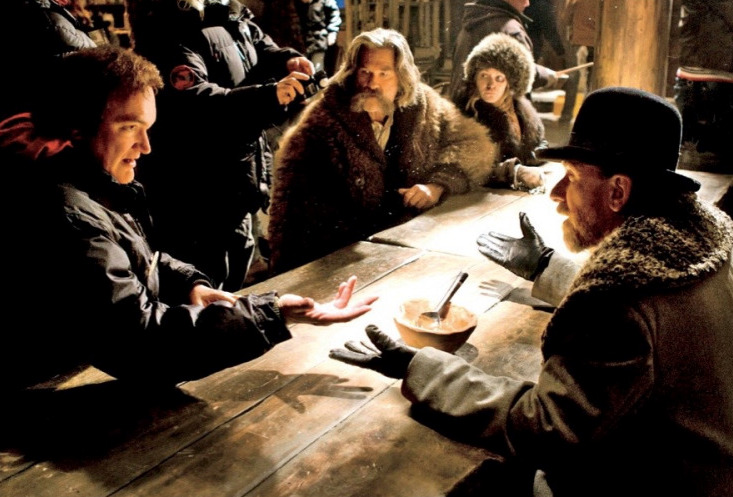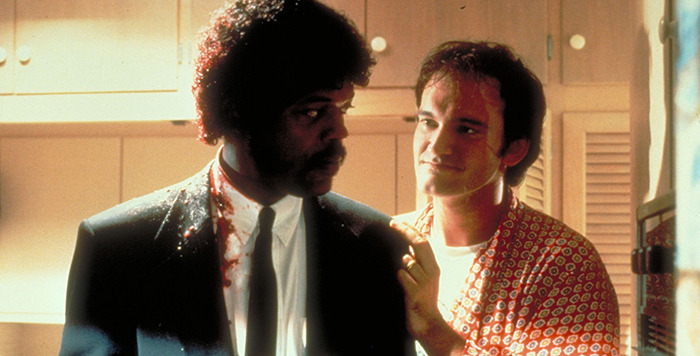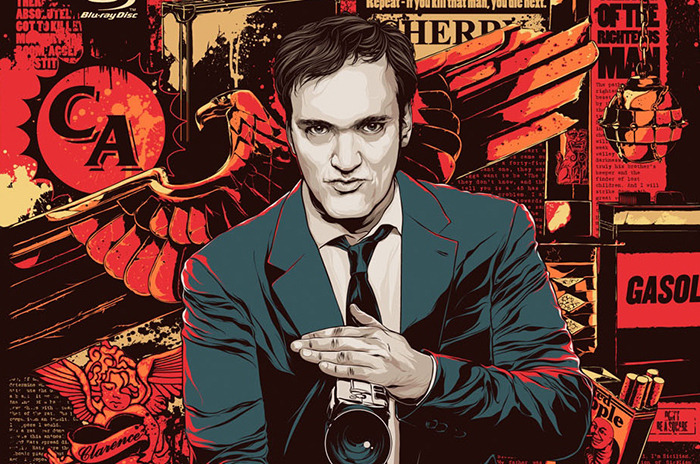Quentin Tarantino On The Current State Of Filmmaking And The Topical Value Of 'The Hateful Eight'
Quentin Tarantino gave a wide-ranging interview that ran over the weekend, and the outspoken filmmaker had plenty to say about the state of the industry, in addition to speaking about his upcoming film The Hateful Eight.
The most interesting comments in Tarantino's talk are about that new movie, as he says that it chiefly concerns racial conflict, and as such is very relevant to the strife we've seen as cities like Ferguson and Baltimore react to killings of young black men and women by police.
We've highlighted eight of the most interesting things Tarantino had to say about his new film, his career, and the state of the industry overall, and you can read those below.
The interview is with Vulture, and it is very much worth reading in full.
On The Hateful Eight
The first big point concerns what The Hateful Eight is really about. We know the film puts eight characters together in a closed space, and the Comic Con preview of the movie gave us some idea about some of the contention between the characters. But here Tarantino really lays it out:
My movie is about the country being torn apart by [the racial conflicts of the Civil War], and the racial aftermath, six, seven, eight, ten years later.
To expand on that idea, Tarantino is asked about the unrest we've seen in Ferguson and other cities, in response to police officers killing black men and women. That, he says, is very much part of the movie.
It was already in the script. It was already in the footage we shot. It just happens to be timely right now. We're not trying to make it timely. It is timely. I love the fact that people are talking and dealing with the institutional racism that has existed in this country and been ignored.
On the State of Filmmaking
Asked about concerns expressed by directors like Steven Spielberg about the state of the current movie landscape, Tarantino expresses slightly different concerns.
My pessimism isn't about franchise filmmaking. That's been going on since I was born. You can talk about Transformers now, but you could talk about the Planet of the Apes movies and James Bond4 when I was a little kid — and I couldn't wait to see those... I don't know why Spielberg and Lucas would be complaining about movies like that. They don't have to direct them.
The movies that used to be treated as independent movies, like the Sundance movies of the '90s — those are the movies that are up for Oscars now. Stuff like The Kids Are All Right and The Fighter. They're the mid-budget movies now, they just have bigger stars and bigger budgets. They're good, but I don't know if they have the staying power that some of the movies of the '90s and the '70s did. I don't know if we're going to be talking about The Town or The Kids Are All Right or An Education 20 or 30 years from now.
One statement echoes recent comments from Christopher McQuarrie, who talked about failing to properly consider marketability with films like Jack Reacher and Edge of Tomorrow. Tarantino says Grindhouse was a real learning experience, as he and Robert Rodriguez discovered audiences weren't automatically willing to go along on whatever ride the directors proposed.
Robert Rodriguez and I had gotten used to going our own way, on these weird roads, and having the audience come along. We'd started thinking they'd go wherever we wanted. With Grindhouse, that proved not to be the case. It was still worth doing, but it would have been better if we weren't caught so unaware by how uninterested people were.
On Actors and "Rescuing" Acting Careers
From the beginning of his career Tarantino's films have helped define the careers of actors, as represented by the explosion in Samuel L. Jackson's popularity thanks to Pulp Fiction, and the revitalizing effect the same film had on the career of John Travolta. Tarantino clearly considers himself an actor's director, and some of his best comments have to do with choosing talent for his films.
He says there's no specific pressure to cast particular actors, for the most part.
If there's a part that a huge star could play, and that star were interested in playing it, there would definitely be pressures to consider them. And I have no problem doing that, unless I don't particularly like that actor. But just because somebody's a star doesn't necessarily mean my fans or their fans want to see us work together. There is such a thing as my kind of actor, and how well they pull off my dialogue is a very, very important part of it.
Even so, Tarantino has found himself shifting away from prioritizing actors to prioritizing his characters.
I've been making movies for 20 years, and as great as some of those decisions I made in the first ten years were, I probably wouldn't make them again. What I mean is, I really liked the scripts I wrote, and I really liked my characters, but I wasn't overenamored, and I wasn't that precious about them. Back then, I got much more excited by cool casting. I liked the idea of taking an actor I've always liked but wasn't being used much anymore and putting him in the movie and showing people what he could do. But I don't feel that way anymore. Now it's all about my characters. I actually think my characters are going to be one of my biggest legacies after I'm gone. So I have no obligation whatsoever other than to just cast it right.




